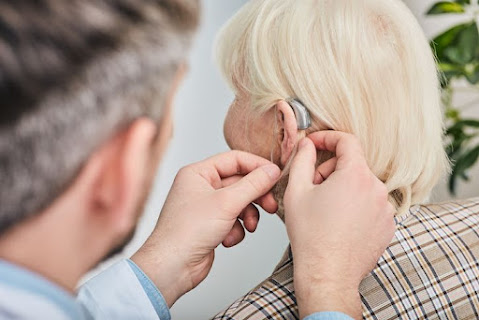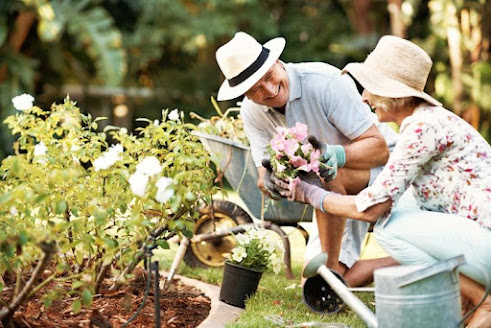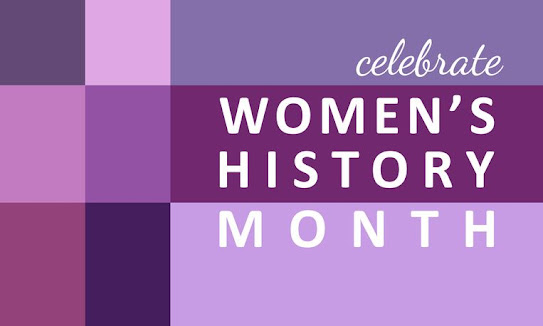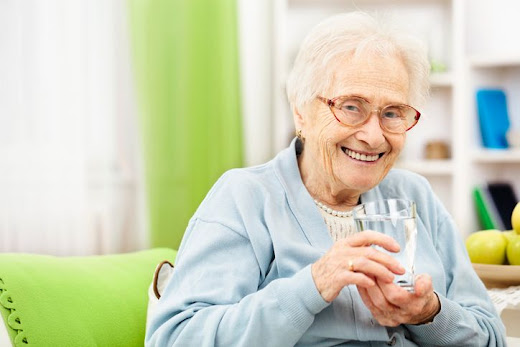Do you drink enough water on a daily basis? What about your elderly loved ones? Many of us don’t! And because we lead busy lives and have dozens of things to worry about on a daily basis, we often forget to hydrate properly. When you’re younger you can sometimes get away with not drinking enough water every day, but seniors are at a greater risk of dehydration for several reasons:
- They’re
less sensitive to feeling thirsty
- Their
kidneys are less efficient, meaning their urine contains more water
- Their
ability to keep balanced fluid levels is decreased
- They’re
often on certain medications that can dehydrate them more quickly
So what are the signs of dehydration in seniors? What
should you be watching out for? Here are some of the mild and more severe
symptoms of dehydration in seniors, to help you ensure your elderly loved ones
are properly hydrated.
Mild
symptoms of dehydration
- Headaches
- Dry
mouth
- Dizziness
- Feeling
weak
- Sleepiness
- Muscle
cramps
While these symptoms sound general and can also be
signs of something else, if your elderly loved one experiences any of these
symptoms, ask them how much water they’re consuming on a daily basis. If they
don’t know or can’t remember, monitor their water intake over the next few days
to ensure they’re drinking enough, and see if any of their symptoms are
alleviated.
Severe
symptoms of dehydration
- Confusion
- Difficulty
walking
- Severe
cramps and muscle contractions
- Low
blood pressure
- Bloated
stomach
- Sunken
eyes
- Breathing
more quickly than normal
If you notice your loved one experiencing any of the
above symptoms, give them a big glass of water and contact their doctor
immediately. Dehydration can cause a range of serious health problems for
seniors, including seizures, heat stroke, kidney complications, and fainting.
How
much water does my elderly loved one need?
The best way to find out how much water your loved one
needs on a daily basis is to speak with their doctor. Certain factors will
impact their daily water intake. For example, seniors who live in hot climates
will need more water than those who live in cooler climates, and seniors who
are on particular medications may need to adjust their water intake due to
medication side effects.
Benefits
of being properly hydrated
Seniors who have an adequate daily water intake are
less likely to be constipated, less likely to have a fall, and are at a reduced
risk for urinary tract infections. All of these things can be very harmful for
older adults, so staying well hydrated is essential as we age. Proper hydration
also improves brain performance, boosts energy, and encourages healthy
metabolism function.
If you find that your elderly loved one has trouble
remembering to drink enough water on a daily basis, some people find that
setting alarms throughout the day serves as a good reminder. You can also turn
it into a family game where everyone encourages one another, and you can buy
your senior loved one a large water bottle with measurements on it so they know
exactly how much they’re drinking.
If you have any questions, or would like more
information about signs of dehydration in seniors and how to prevent it,
please contact our team at UMC today. We look forward to
hearing from you.
Original content posted on https://umcommunities.org/blog/what-are-the-signs-of-dehydration-in-seniors/












